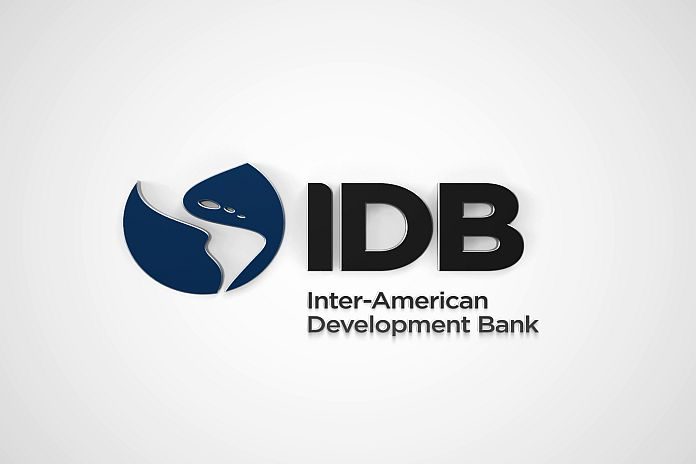WASHINGTON, USA – The Inter-American Development Bank (IDB) its innovation-focused IDB Lab, PepsiCo, and the PepsiCo Foundation signed a new memorandum of understanding extending their public-private partnership until 2026 to carry out programs that will drive social and economic growth in Latin America and the Caribbean.
The signing of this agreement will complete 19 years of joint efforts in the region.
In this new phase, PepsiCo and its Global Foundation are investing approximately US$6 million in projects that will be implemented over the next five years. These projects aim to generate solutions in four areas of mutual interest: water access, inclusive recycling, sustainable agriculture, and economic recovery. All programs will pay special attention to women’s empowerment.
“I am pleased to announce the strengthening of our partnership with PepsiCo, as well as the launch of the Next Generation Agriculture Fund. Our collaboration with PepsiCo reflects the IDB’s commitment to working with strategic partners on priority issues for the region, including water access, rural development, and women’s participation in the agricultural value chain. By collaborating with the private sector, we can develop new and creative solutions that directly benefit local communities and women in our region,” said IDB President Mauricio Claver-Carone.
According to the UN Food and Agriculture Organization (FAO), in Latin America and the Caribbean, 4.5 million women are agricultural producers who earn 24 percent less than men and have less access to land ownership. Women’s work in agriculture is paid less and valued less than that of men. Research shows that if women farmers had the same access to resources as men, they could increase their land yield by 20 y 30 percent, potentially reducing the number of hungry people in the world by 150 million.
As such, as part of this expanded partnership, IDB Lab and PepsiCo are launching the Next Generation Agriculture Fund, which aims to identify challenges connected to gender issues within PepsiCo’s potato supply chains, initially in the Dominican Republic, Ecuador, and Guatemala. The three-year program will help improve the resilience and sustainability of the supply chains in these three countries.
During the virtual signing of this alliance, Ramon Laguarta, chairman and chief executive officer of PepsiCo, said “the partnership we have built with the IDB has been key to positively impact the lives of 19 million people in Latin America and the Caribbean through investments of $17 million over 14 consecutive years in the areas of water and sanitation, nutrition, sustainable agriculture, inclusive recycling, and support in natural disasters. PepsiCo reaffirms its commitment to Latin America and the IDB to reach more beneficiaries over the next five years.”
At the event, Paula Santilli, chief executive officer of PepsiCo Latin America, said “as an agro-industrial company, PepsiCo has witnessed how the participation of women in the fields and throughout our value chain is key to achieving a sustainable food system. We believe that including them in the agro sector is fundamental, which will benefit them, their families, and their communities. Their employability will be crucial to reactivate the economy and growth of our region. This is how we came up with the Next Generation Agriculture Fund, where PepsiCo and the IDB will be investing US$2 million to research and take action to enhance the role of women as strategic partners in our potato supply chain.”
Of the many projects that have been implemented by the IDB-PepsiCo partnership over the years, the following are particularly noteworthy:
- In terms of water and sanitation: HydroBid and AquaFund have sought to promote water security at a regional level, managing to facilitate or improve access to drinking water for more than 15 million people since 2011.
- Hydro-BID is a ground-breaking water resource data management and modeling tool that identifies potential water shortages or surpluses to improve local decision-making and prevent droughts or floods. With the PepsiCo Foundation’s support, Hydro-BID has been implemented in 12 countries, including Argentina, Brazil, Colombia, Ecuador, Guatemala, Mexico, Peru, and the Dominican Republic.
- In addition, the AquaFund has implemented projects in Colombia, Mexico, Peru, and Honduras to deliver drinking water to hard-to-reach rural communities.
- In terms of recycling: Through the LatitudR platform, PepsiCo and the IDB works hand in hand with public and private actors in 12 countries to create the necessary conditions for the inclusion of grassroots recyclers into the integral management of solid waste and the recycling value chain. To date, more than 19,000 recyclers have benefited from the program.
- In terms of nutrition: The SPOON initiative applies an innovative and comprehensive strategy to simultaneously reduce malnutrition and the risk of obesity in children aged 0 to 24 months living in high-poverty areas in Guatemala. To date, the program has benefited 974 children.





